A hero of sorts: Retired army serves the community through farming
He once served in special forces of the Philippine Army but opted to retire early and is now concentrating on farming.
By Henrylito D. Tacio
American Baptist minister and activist Martin Luther King, Jr. once said: “Everybody can be great because anybody can serve. You don’t have to have a college degree to serve. You don’t have to make your subject and verb agree to serve. You only need a heart full of grace. A soul generated by love.”
Those words came to mind while interviewing 44-year-old Mhar H. Baclay in his home in sitio Sto. Niño of barangay New Clarin, Bansalan, Davao del Sur one Monday morning. He once served in special forces of the Philippine Army but opted to retire early and is now concentrating on farming. He also serves as a treasurer of the farmers association in the community.
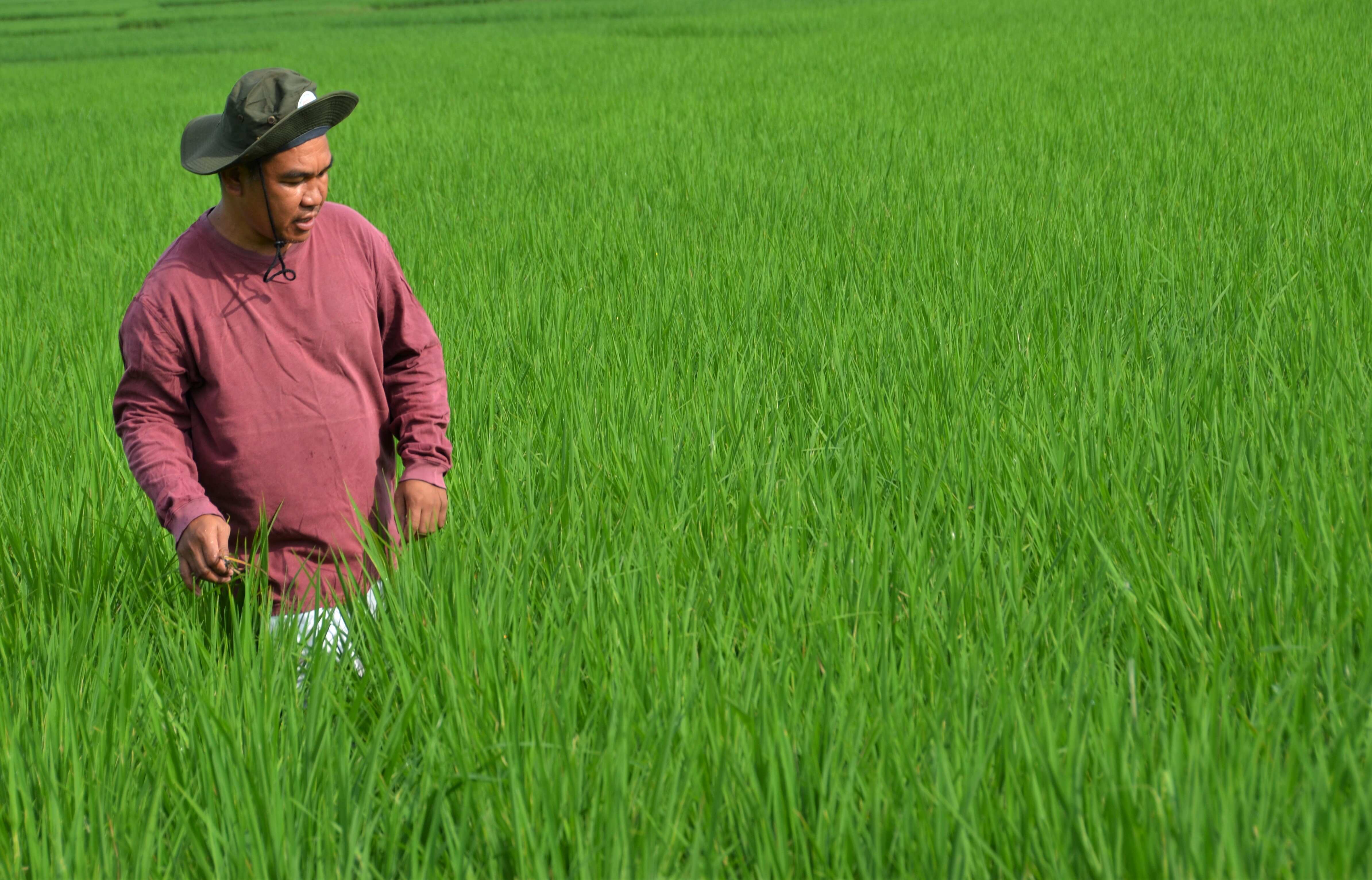
Speaking in Bisaya, Baclay said, “It’s not only being a member of the military that we can serve our fellow man but also in providing food for their tables. That is what we, farmers, are doing.”
It seems the statement of inspirational speaker Brenda Schoepp was whispered into my ears: “My grandfather used to say that once in your life you need a doctor, a lawyer, a policeman and a preacher. But every day, three times a day, you need a farmer.”
Freddie Baclay and his wife, Benifreda, have five children; Mhar is the fourth of the siblings. His father was a farmer and he often accompanied his father whenever he went farming as far as he could remember.
Started farming at early age
In fact, Mhar started farming when he was only 10 years old. So, it’s not surprising that he is now a farmer just like his father.
His farm is located about 7 kilometers away from the town proper. He plants rice in about 6.5 hectares. He also has a two-hectare farm planted to coconut and another two hectares to banana. Actually, he owns only one hectare and the rest are only mortgaged to him.
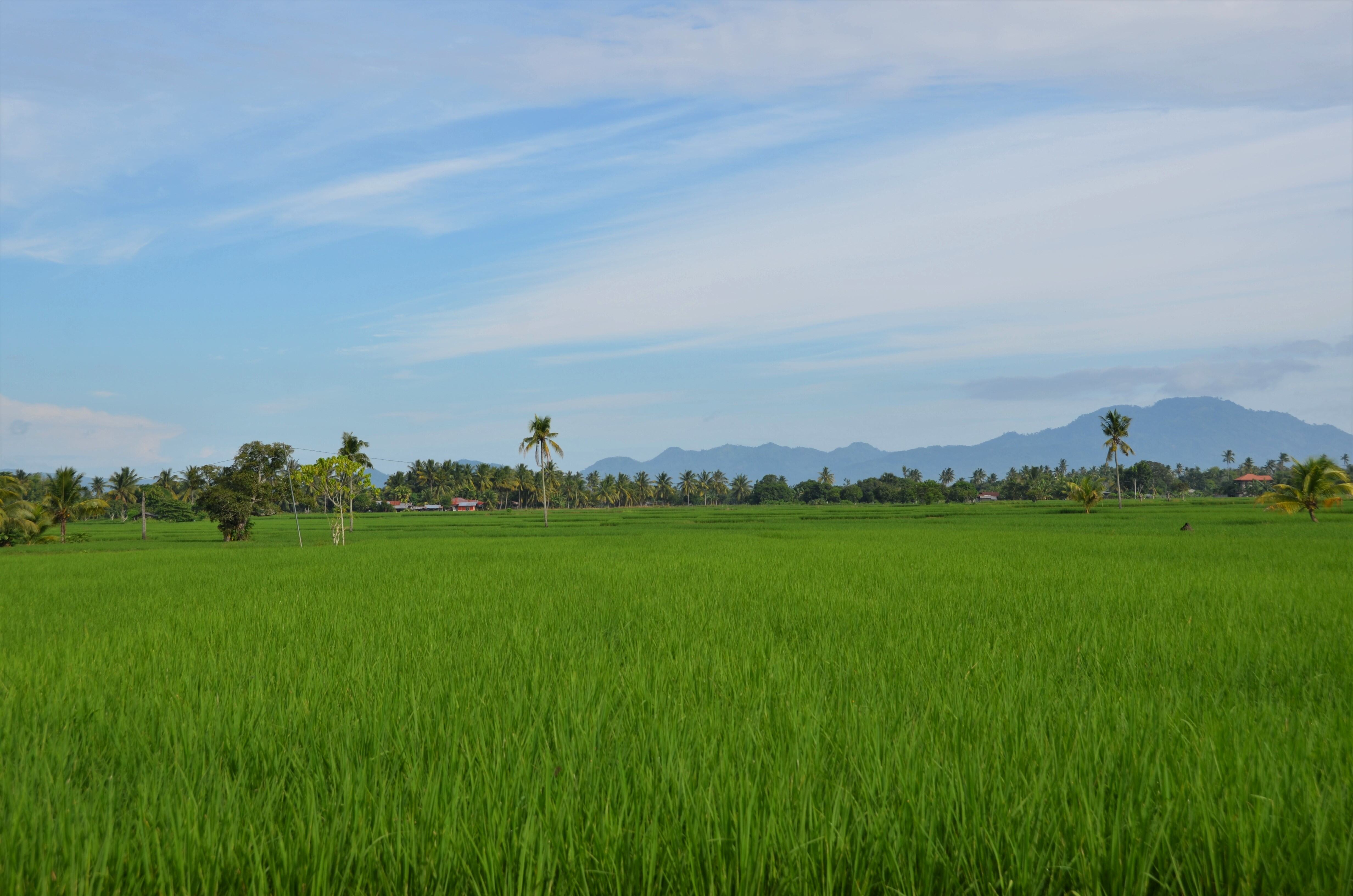
The one-hectare farm, which is about 600 meters away from his house, is planted to coconuts with bananas as intercrop. He is also raising ducks and meat-type goats. He said the goats are only for consumption but he is planning to raise more later on.
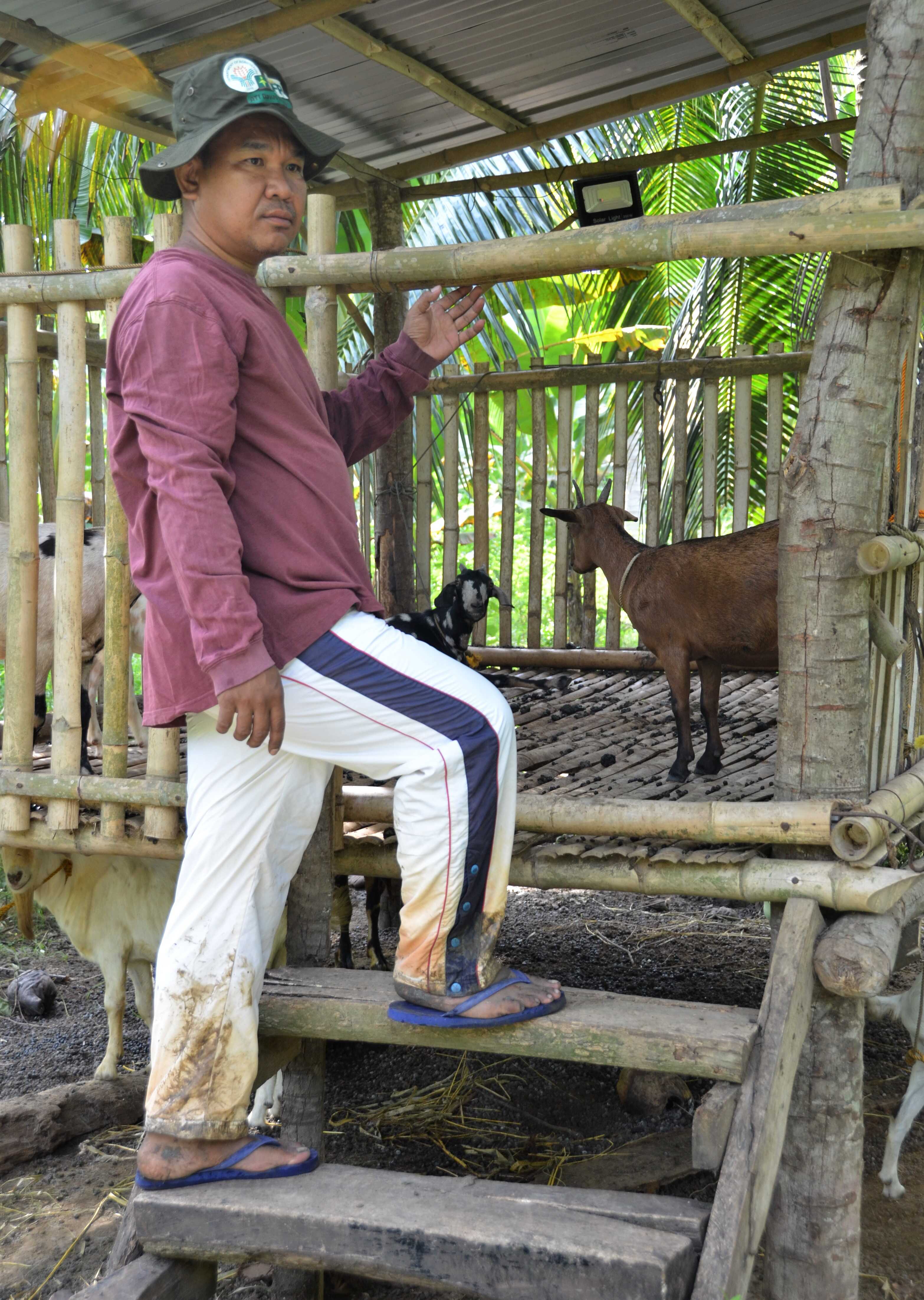
Indeed, Baclay has gone a long, long way already. He attended college as a scholar of a politician taking Bachelor of Science in Criminology at University of Mindanao Bansalan College. But when the politician didn’t win in the election, the scholarship also ended.
His father was only working as a laborer on his aunt’s farm and there was no other source of income, so he decided not to pursue his dream of becoming a policeman. In addition, her three sisters were also in college, he quit and applied to become a soldier.
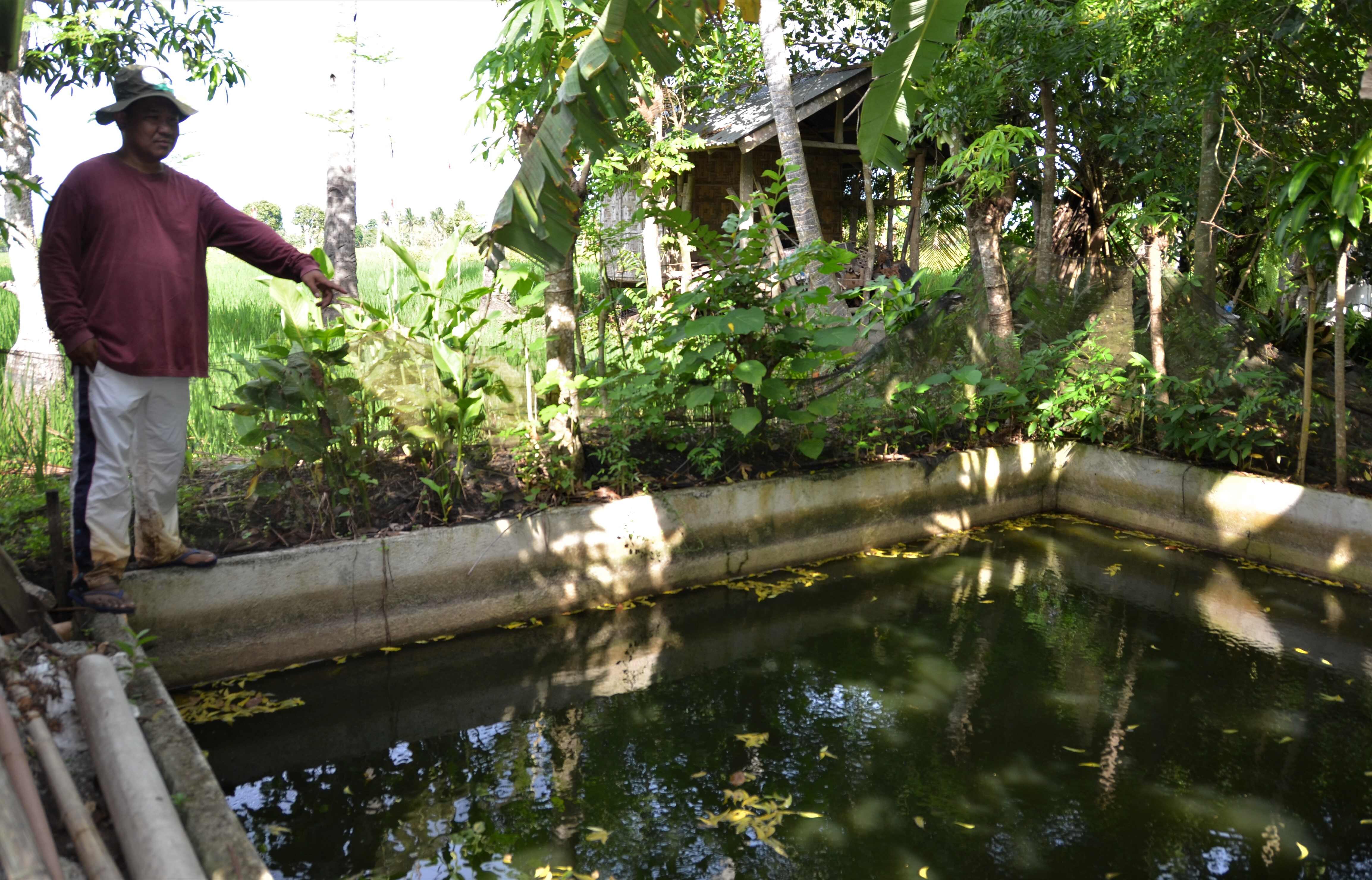
Military service
Baclay was only 18 when he entered the military service. This was in 1998. “I really wanted to serve our country,” he explained. “At the same time, being a soldier is a stable job.”
In 2010, he got married to his longtime sweetheart, Zenith Solana. As a soldier, he was assigned to far-flung places. And it came to pass that he could see his wife not regularly anymore. So, he talked with his wife one night about their future plans.
After 21 years of service, he decided to retire from being a soldier. He was 39 years old by then. With the retirement money he got, the pension he receives monthly and from the salary of his wife as a teacher, they were able to save money. They used the saved money in buying their own farm; they also accepted mortgaged lands.
On why he likes farming, he replied, “Farming isn’t stressful. In fact, it is very relaxing when you do farming. I also like the green environment. But most importantly, there is money in farming if you really know the basics of it.”
Growing rice
Since he already knows about rice growing, he decided to focus on it. Studies have shown that for every peso spent on food, 20 centavos go to rice. According to the Bureau of Agricultural Statistics, Filipinos spend more on rice than any other food.
“I plant rice because this is the crop being grown in our community,” Baclay said. “Besides, rice is our staple food. Wherever you go, there is always a market for rice.”
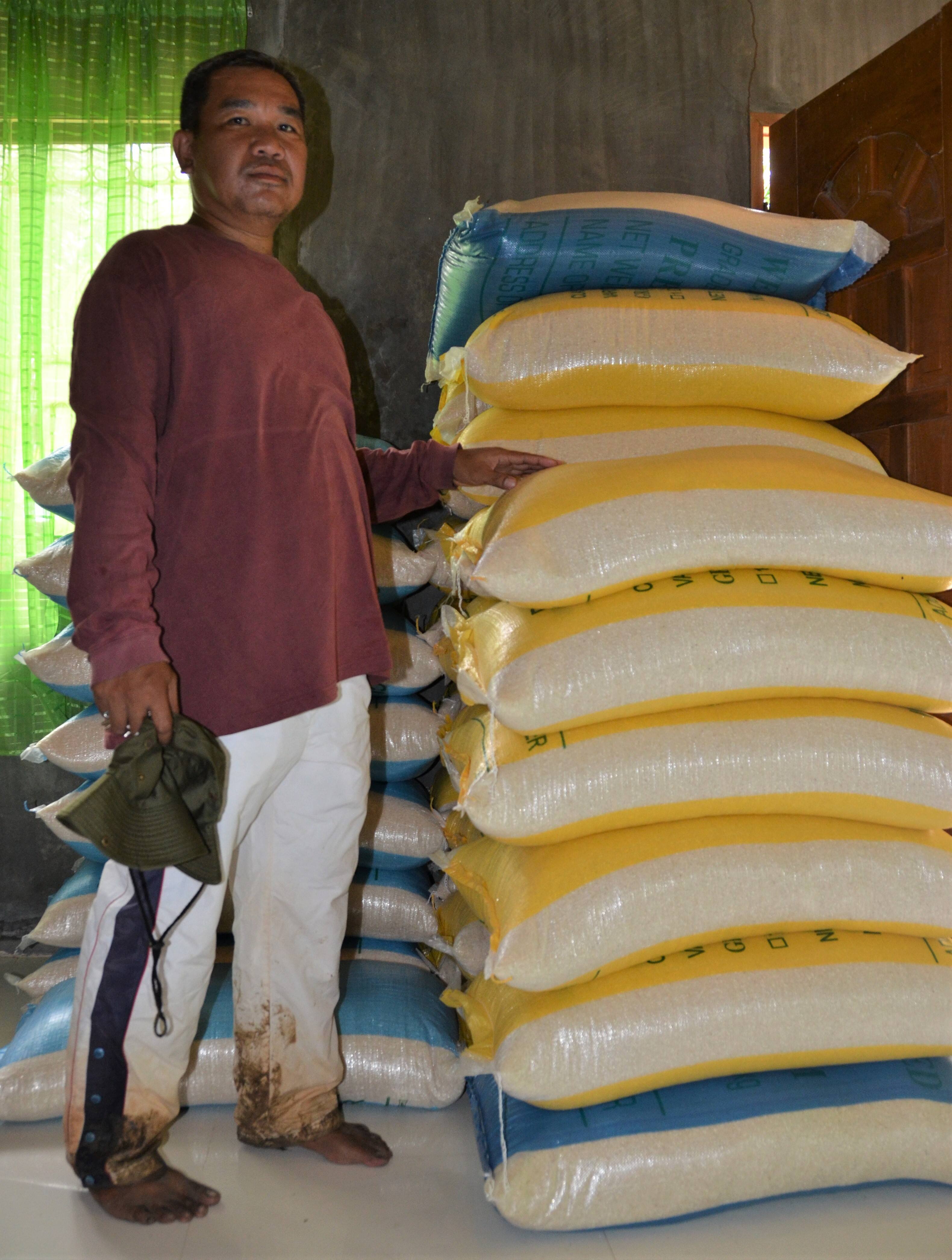
What he learned from his father, however, was the traditional method of growing rice like using carabao for plowing. To get first-hand information, he attended training and seminars conducted by the municipal agriculture office.
Thanks to machinery, growing rice these days is easier. In the past, it took about three days to prepare the land for planting. But these days, it’s just a matter of hours. “I am a member of Sto. Nino-New Clarin Communal Irrigators Association and we have some machines we can rent to do planting and harvesting,” he said.
Baclay practices two cropping seasons for rice: one during wet season and another during the dry season.
Although he himself manages the farm, he has four people who help him maintain the rice farms. His helpers get about 15% of the gross income of the farm as their salary. Maintenance refers to weeding, irrigation, application of fertilizer, and helping during the harvesting.
Most of the expenses he incurs in growing rice comes from land preparation, planting and fertilizer application. He spends about 50% of the total expenses in fertilizer alone. He applies commercial fertilizer (9 bags per hectare) three times per cropping. “Fertilizer is really important when it comes to growing rice,” he pointed out.
The rice straw, which is scattered evenly by the rice harvester machine, is left in the field after harvesting. “We don’t burn rice straw. We just left them in the field and became organic fertilizer,” he said.
Organic farming
But he doesn’t use pesticides. “Since 2015, we have stopped spraying our crops with pesticides,” he pointed out. “We learned from seminars on rice production through Farmers Field School that if we spray them with pesticides, those helpful insects will also be exterminated.”
Most rice farmers in the area are not using pesticides anymore. They have observed that by not using pesticides, they have lessened their expenses. In addition, they are healthier compared to the time when they were using pesticides.
If ever he has problems, Baclay consults with the designated agricultural technician in his community. Aside from consultation, he also receives rice seeds. For three cropping seasons now, the agriculture office has been providing rice farmers seeds.
After harvesting, he brings the palay to an adjacent town – in Sinaragan, Matan-ao, Davao del Sur – where it is dried and then milled. It is about 12 kilometers from the farm.
For every hectare, he harvests an average of 7 tons of palay. Once it is milled, he gets 80 sacks (which contains about 50 kilos per sack).
He doesn’t sell his milled rice in the market. Instead, he stocks them in house. Neighbors come to his house and buy them at prevailing market prices in the town proper. “If the price per sack in the public market is P2,100, I sell them also at P2,100,” he said.
Other crops
Baclay also got a mortgaged land planted to coconuts. But since the coconut trees are already older, he intercrops it with bananas. He doesn’t worry about where to sell his bananas as there is someone (“comprador”) who buys them on the farm.
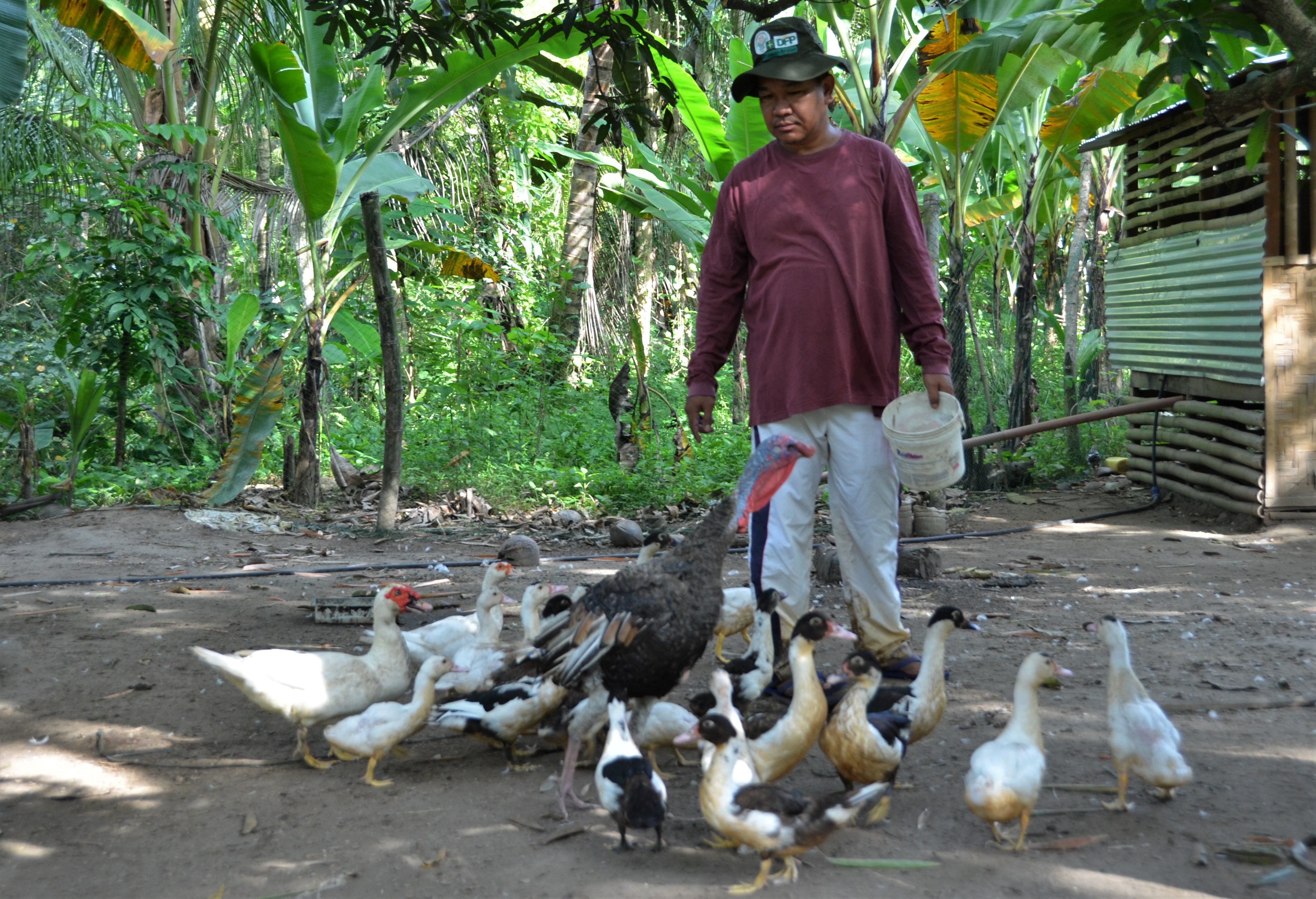
He harvests banana fruits every 14 days, getting 850 kilograms per harvesting. At least three workers are maintaining the farm. He only visits the farm every now and then and sees how the workers are doing and if the crops are alright.
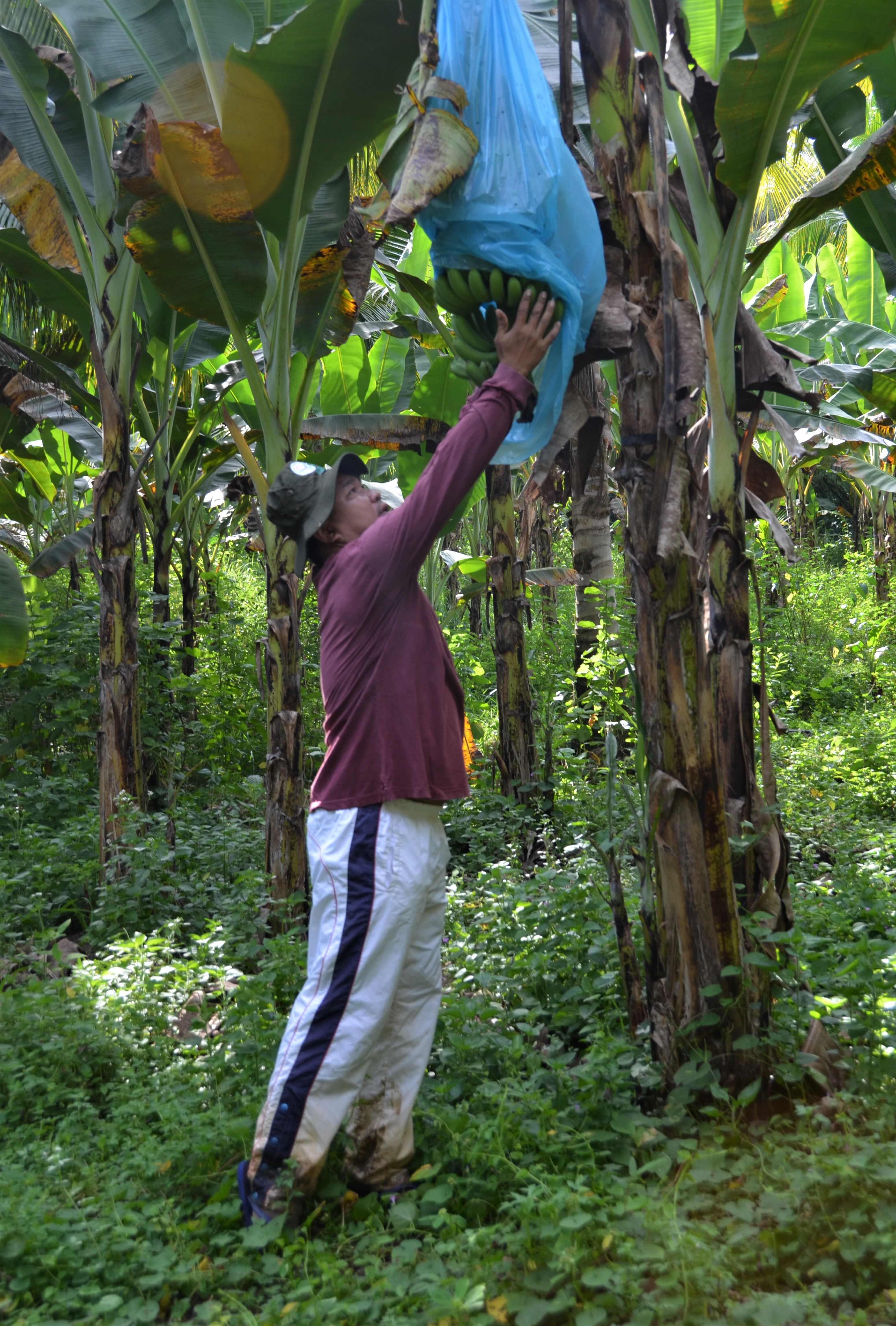
On why farmers should be considered heroes, Baclay explained, “If there are no farmers, we don’t have food to eat.” He added, “Farming is one of the solutions to the problem of hunger and economic crisis. It is also a way of getting a steady income.”
Photos by Henrylito D. Tacio